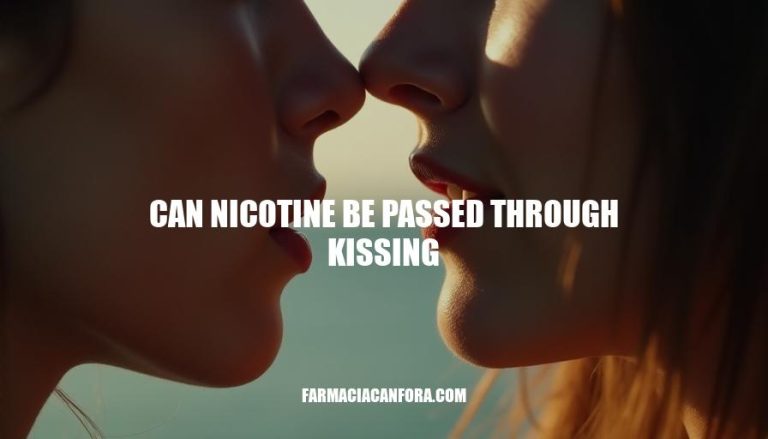


Nicotine is a highly addictive substance found in tobacco products. It’s not just about smoking or vaping – it can also be a concern when people are close to each other. For example, can nicotine be passed through kissing?
This is an important question because more and more people, especially younger ones, are using nicotine products. When we’re intimate with someone, like when we kiss, we want to know if their habits could affect us.
Several studies have aimed to determine whether measurable amounts of nicotine can be exchanged during open-mouthed kissing between a smoker and a non-smoker. A small 2014 study published in the Journal of Analytical Toxicology involved 10 habitual smokers kissing non-smoking partners for either 30 or 60 minutes. The non-smokers provided saliva samples both before and after the prolonged kissing sessions.
Analysis detected the presence of cotinine, the primary metabolite of nicotine, in the post-kissing saliva samples of non-smokers. However, cotinine concentration decreased rapidly, indicating a lack of cumulative build-up.
Dr. Gurmukh Singh, a medical professional, stated that the transmission of nicotine through kissing is insignificant and not likely to transmit any significant amount of nicotine to a non-smoker. This viewpoint is supported by the fact that systemic absorption of nicotine requires inhaling tobacco smoke into the lungs.
Nicotine transport relies heavily on pH levels, and the acidic environment of stomach acid when smoking allows absorbed nicotine to move freely to receptors in the brain. This cannot occur with nicotine lingering in saliva from secondhand mouth exposure.
The Academy of General Dentistry (AGD) and the Centers for Disease Control (CDC) have highlighted the harmful effects of secondhand smoke on oral health. Victims of secondhand smoke are exposed to about one-third of the nicotine from active smokers, making them susceptible to many of the same health issues as smokers, such as stroke, lung cancer, coronary heart disease, and gum disease.
However, the AGD and CDC do not specifically address the transmission of nicotine through kissing.
While scientific evidence confirms that barely detectable amounts of nicotine can end up in a non-smoker’s saliva post-kissing, true physiological absorption does not occur from mouth-to-mouth contact alone. Some people report experiencing fleeting sensations like dizziness, nausea, or lightheadedness after open-mouth kissing of smokers. This likely stems from swallowing trace tobacco residue or inhaling minute exhaled smoke rather than actual nicotine uptake.
In summary, while trace levels of nicotine may be present in the saliva of non-smokers after kissing a smoker, the actual uptake into the body does not appear to take place to a significant level.
The tiny, transient traces transmitted through kissing do not get processed or concentrated like smoked nicotine, and true physiological absorption does not occur from mouth-to-mouth contact alone.
The article explores whether nicotine can be passed through kissing between a smoker and a non-smoker.
Based on the evidence presented, it appears that while trace levels of nicotine may be present in the saliva of non-smokers after kissing a smoker, true physiological absorption does not occur to a significant level. The tiny, transient traces transmitted through kissing do not get processed or concentrated like smoked nicotine.